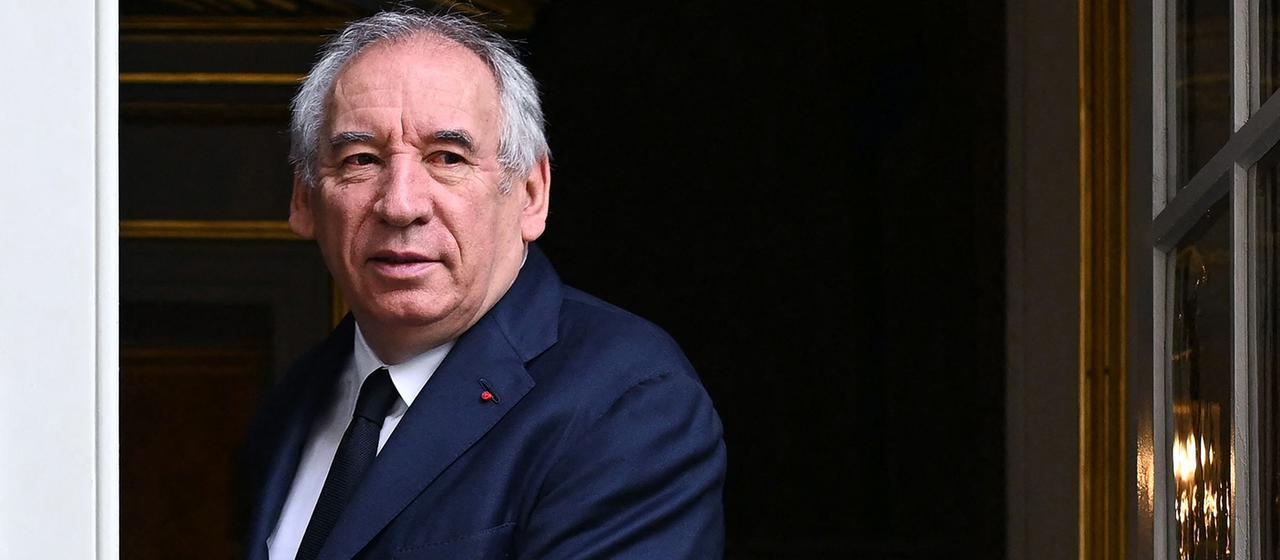
FAQ
It was Bayrou's leapfrog, and now it's clear: France's prime minister must step down. What follows the lost vote of confidence? And what does this mean for French President Macron?
How did the vote of confidence come about?
France is heavily indebted. According to the now-ousted Prime Minister François Bayrou, there is no way out of the financial crisis without a strict austerity program.
He aimed to reduce the government deficit to below 4.6 percent of gross domestic product next year. A deficit of 5.8 percent is expected for this year – against the European limit of 3 percent.
Bayrou's austerity plan envisaged savings of around 44 billion euros, public spending with the exception of defense was to be restricted, pensions and social benefits were to be frozen, and two of the eleven public holidays were to be abolished.
The austerity plan sparked massive criticism from the opposition and the unions. It was considered quite likely that the center-right government would have been brought down by the opposition in the coming weeks.
Therefore, Bayrou took the plunge and asked for a vote of confidence – despite the foreseeable outcome, as various representatives from the left and right camps had announced in advance that they would withdraw their confidence in Bayrou.
What happens now after the lost vote?
The outcome of the vote automatically entails the resignation of Bayrou's government. President Emmanuel Macron must now appoint a new head of government. Theoretically, he could also call new elections, but the head of state has so far ruled out this scenario.
There is no deadline for the appointment of a new prime minister. Until then, the previous government remains in office in a caretaker capacity. This means it continues to handle ongoing matters. However, new legislative proposals or decisions that would affect the incoming government are not possible.
Why are there no new elections?
The French had only been called for early elections in the summer of 2024. President Macron did so after the right-wing radicals' strong performance in the European elections – and gambled badly. Instead of emerging stronger from the election, his centrist coalition lost its already slim majority.
Since then, the National Assembly has been split into three blocs: the right-wing, the left-green, and the government camp. According to polls, the majority situation is unlikely to change significantly in potential new elections.
Who could become the new prime minister?
After the 2024 general election, the left-wing alliance of the Socialists, the Greens, the Left Party (LFI), and the Communists will hold the most seats in parliament. Therefore, since last year, the coalition has been demanding a head of government from its own ranks, as is traditional in France. Macron, however, has so far denied the left this request.
Macron is completely free to choose. However, it is already clear that Bayrou's successor will also have his hands tied given the complicated majority situation in the National Assembly.
According to experts, the only chance of pushing through an austerity budget for 2026, for example, is to seek the support of the moderate Socialists. Whether Macron will take this path, however, remains unclear.
Candidates from the government camp are still being discussed, including Justice Minister Gérald Darmanin, Finance Minister Eric Lombard, and Defense Minister Sébastien Lecornu. Labor Minister Catherine Vautrin is also being mentioned.
How quickly can we expect a new position to be filled?
Macron is expected to take no time in appointing a new prime minister, as France is facing a wave of strikes and protests. Shortly after Bayrou presented his austerity budget, calls for a nationwide lockdown next Wednesday spread across France.
Although it remains unclear who is behind the call"Bloquons tout" (Let's block everything), security forces are on alert. Up to 100,000 protesters are expected, along with spectacular blockades and sabotage.
The unions then called for nationwide strikes and rallies against the government's austerity measures on September 18. These protests are now assuming the dimensions of a general strike, with the Paris public transport system and the railways slated for strike action, and air traffic controllers have also called for a strike.
French media suspected that Macron would want to have a new prime minister and a new government team in place by this date at the latest, so as not to become the main focus of the protests himself.
The new Prime Minister usually presents a new government team within a few days.
What does the vote mean for Macron’s political future?
The frequent changes of government are reminiscent of the Italian situation a few years ago – and they significantly limit Macron's ability to act. Nevertheless, he doesn't have to resign. The vote was only about the government, not about Macron, who, as head of state, is directly elected by the people.
Although polls now show that two-thirds of French people are in favor of early presidential elections—the next one is scheduled for 2027—Macron has so far categorically ruled this out.
However, many are now more likely to blame the president for the unstable political situation. The complicated situation, in which no political force has a majority of its own, is a result of the parliamentary elections he brought about in 2024.
The left has already called for an early presidential election. The right-wing nationalists, despite all their criticism of Macron, are likely to remain quiet on this point. Because of ongoing legal proceedings, it is still unclear whether their parliamentary group leader, Marine Le Pen, would even be allowed to run in the election. However, they are putting pressure on Macron to dissolve parliament again – in the hope of further increasing his vote.

